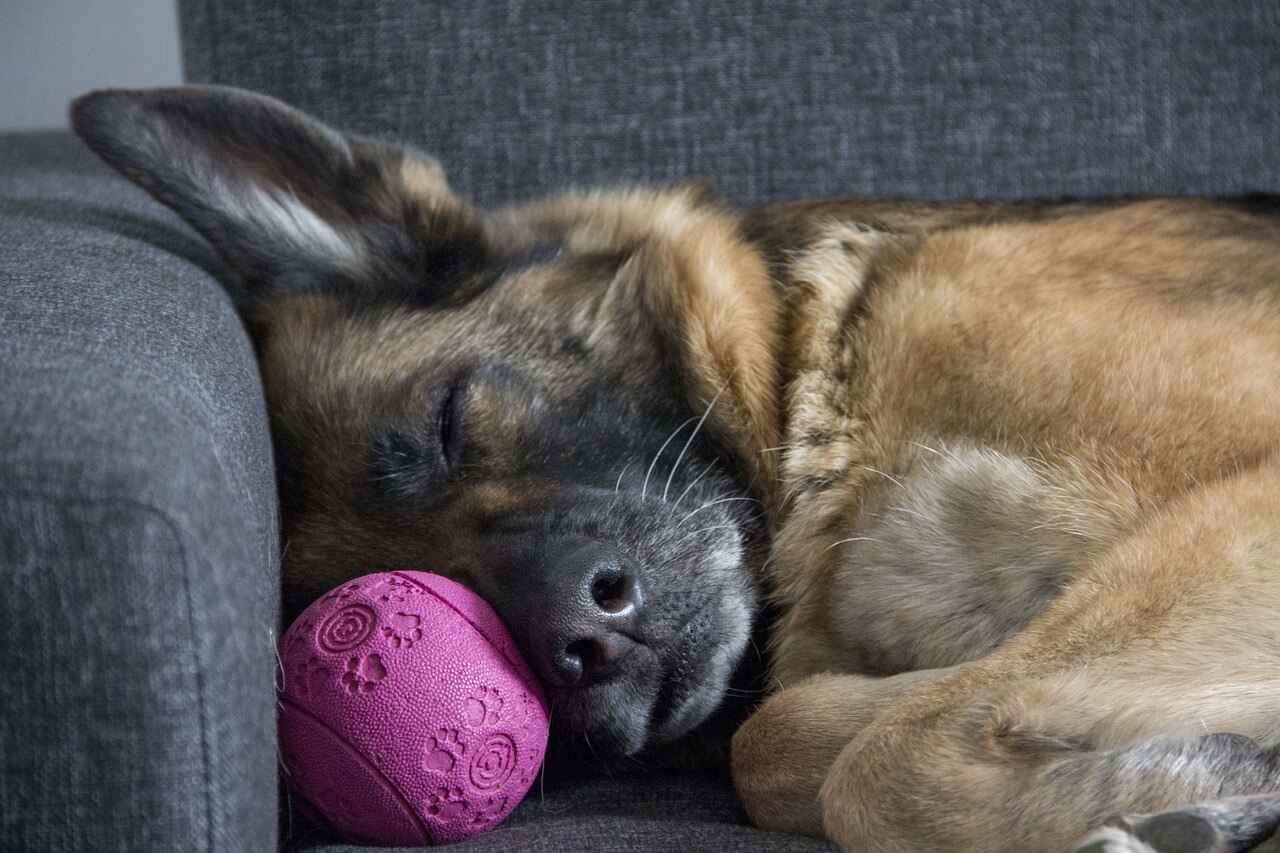Exercising your dog is beneficial to his physical and mental health, but over-exercising your dog can be hazardous to his health. While it is vital to note how much exercise your dog needs and what type of exercise they require, there is no one-size-fits-all solution; it is critical to notice injury symptoms. Allow time for your beloved friends to relax and recover while you evaluate their exercise plan if you notice indicators that they are exercising too much.
Wear-and-Tear on Paw Pads:
This is a pretty common occurrence in dogs. Dogs may place high importance on playing. For them, playing time is more essential than sore feet. As a result, even if their foot pads are damaged, they will prefer to run. The feet have already weakened and are still undergoing physical activity. Injuries to the pads are excruciatingly painful. Cracked blisters appear on foot as a result of this. Regularly checking your dog's claws for damage is the best approach to diagnose this problem. There will be noticeable flaps in the skin if your dog's paw is more active. You may observe swelling or even pus if it is impacted.
Sore muscles:
Your dog may be overworked and exercising too much if he moves slowly or shows stiffness in his muscles and joints. They may even exhibit pain-related behaviors, like avoiding your touch, screaming when you touch them, losing their hunger, and so on.
This is especially obvious following a period of relaxation following intense exercise. When your dog first gets up after a long rest, he may struggle or move slowly and carefully. Your dog may also avoid stair climbing or other exercises that demand a complete range of motion or impact.
Heat sickness:
Excessive exercise is particularly risky in hot weather because your dog may overheat. Heat exhaustion and heatstroke in dogs are becoming increasingly harmful, if not fatal. You must keep an eye on your dog over the summer to ensure that he is not overworked or overheated.
Excessive exercise can cause dehydration, trouble breathing, and hyperthermia, which is a condition in which your dog's body can keep cool for extended periods and regulate its temperature, such as heatstroke. Elderly dogs, young dogs, and brachycephalic dogs are especially sensitive to heat, have more trouble cooling and controlling their temperature, and are more likely to suffer from heatstroke.
Products to relieve overheating:
Dog raincoats aren't simply cute; they're also functional. Even the simplest raincoat for dogs is a sight to behold. They can aid with heat, visibility, and even skin and coat health, in addition to keeping your dog dry. Those who profit from a dog raincoat, on the other hand, will be pleased with their purchase, so think about it before you make a selection.
"Reflective all-weather waterproof dog raincoat" is one of the many coats available for dogs to prevent overheating and keep them safe in adverse weather. This dog raincoat reflects the sun's rays while also keeping the dog dry on rainy days. The coat is washable, shiny, safe, adjustable, and long-lasting.
Behavioral changes:
If your dog used to like exercise but now despises it, there is something to be concerned about. You should see a veterinarian right away. Dogs require daily exercise to stay in good physical and mental shape. On the other hand, overworking a dog can result in irreversible complications.
Joint injury:
A sprain or strain in a dog's joint is known as a joint injury. Toe joints are more sensitive than other joints. This is due to the fact that dogs' front limbs bear 65 percent of their weight. As a result, their limbs are taut. When the dog's legs are straight, they can place too much weight on the bone, causing the joints to become painful. Taller breeds, such as Dutch shields and hounds, are more prone to joint ailments when exposed to exercise. Back pain is often a problem for some breeds.
Products help to relieve dog joint pain:
Since their introduction to the market, dog beds have come a long way. These days, our Canine best friends deserve the best to keep their partners comfortable and peaceful. A dog bed can help your dog with joint pain or aches that come with age.
Our puppies sustain considerable damage to joints and bones throughout their lives, resulting in injuries, surgery, and long-term difficulties. Dog beds like "Dog Bed" help the dogs suffering from joint problems and injuries. Dog beds give a soft area and support the bones, muscles, and joints.
A puppy's exercise needs and tolerance differ from an adult dog's. Their muscles, tendons, and bones are all developing and increasing. Repeated and over-the-counter activity can cause substantial harm since the growth plates on their giant bones have not healed and are not sealed. When taking your dog on a walk, keep an eye on them and stop if they show signs of exhaustion, such as staying behind, lying down, or panting.
Read More: https://joevazquez.shop/a/blog/how-cold-is-too-cold-for-dogs





